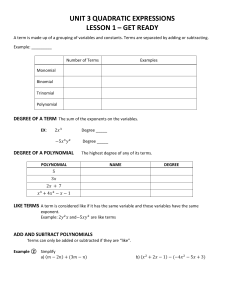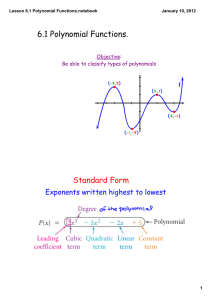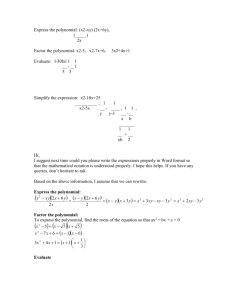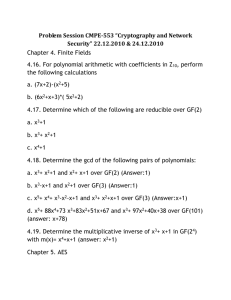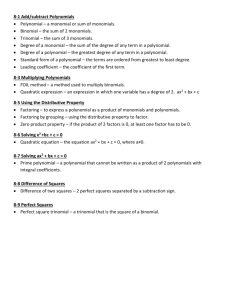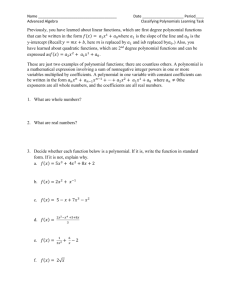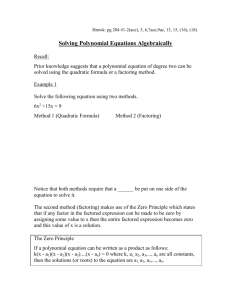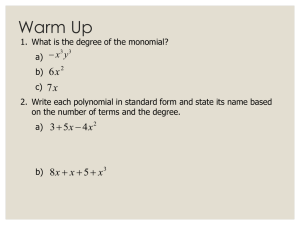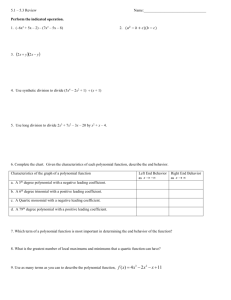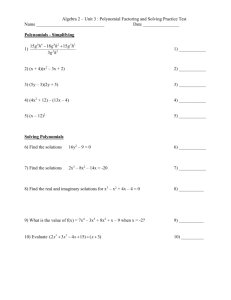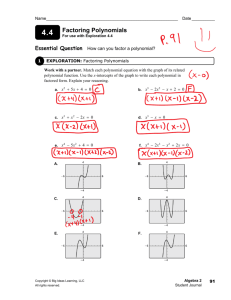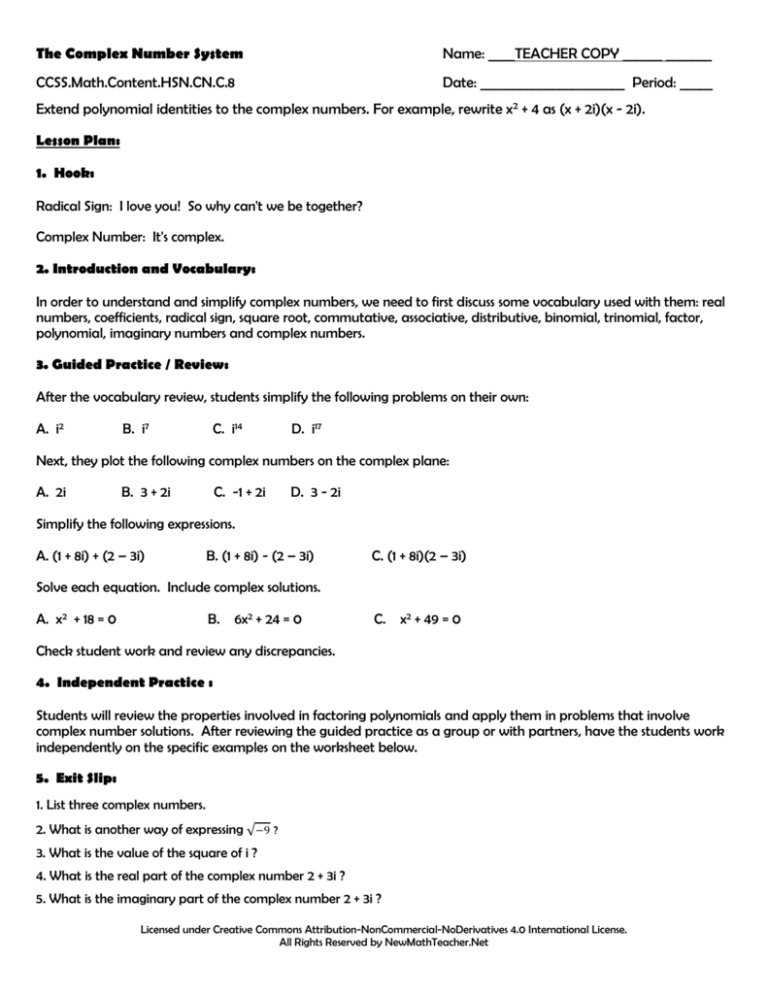
The Complex Number System
Name: ____TEACHER COPY ______ _______
CCSS.Math.Content.HSN.CN.C.8
Date: ______________________ Period: _____
Extend polynomial identities to the complex numbers. For example, rewrite x2 + 4 as (x + 2i)(x - 2i).
Lesson Plan:
1. Hook:
Radical Sign: I love you! So why can't we be together?
Complex Number: It's complex.
2. Introduction and Vocabulary:
In order to understand and simplify complex numbers, we need to first discuss some vocabulary used with them: real
numbers, coefficients, radical sign, square root, commutative, associative, distributive, binomial, trinomial, factor,
polynomial, imaginary numbers and complex numbers.
3. Guided Practice / Review:
After the vocabulary review, students simplify the following problems on their own:
A. i2
B. i7
C. i14
D. i17
Next, they plot the following complex numbers on the complex plane:
A. 2i
B. 3 + 2i
C. -1 + 2i
D. 3 - 2i
Simplify the following expressions.
A. (1 + 8i) + (2 – 3i)
B. (1 + 8i) - (2 – 3i)
C. (1 + 8i)(2 – 3i)
Solve each equation. Include complex solutions.
A. x2 + 18 = 0
B.
6x2 + 24 = 0
C.
x2 + 49 = 0
Check student work and review any discrepancies.
4. Independent Practice :
Students will review the properties involved in factoring polynomials and apply them in problems that involve
complex number solutions. After reviewing the guided practice as a group or with partners, have the students work
independently on the specific examples on the worksheet below.
5. Exit Slip:
1. List three complex numbers.
2. What is another way of expressing √−9 ?
3. What is the value of the square of i ?
4. What is the real part of the complex number 2 + 3i ?
5. What is the imaginary part of the complex number 2 + 3i ?
Licensed under Creative Commons Attribution-NonCommercial-NoDerivatives 4.0 International License.
All Rights Reserved by NewMathTeacher.Net
The Complex Number System
Name: ____________________ ______ _______
CCSS.Math.Content.HSN.CN.C.8
Date: ______________________ Period: _____
Extend polynomial identities to the complex numbers. For example, rewrite x2 + 4 as (x + 2i)(x - 2i).
Review of Polynomials with Real Solutions
Classify the polynomial by the number of terms and state the degree of the polynomial.
Polynomial
Monomial, Trinomial, Binomial
Degree
1. 3x3y4
2. x5 – 2x3 - 4
3. 2y + 5
Write the polynomial so that the exponents are in descending order.
4. (3x + 5) + (2x - 3)
3x
2x
+5
-3
5. (3x + 5)(2x - 3)
Factor out the greatest common monomial factor.
6. 7x2 - 7x = ____ (
7. x2 - 4x - 5 = (
)
)(
)
For an equation in the
form:
Solve the equation for x.
8.
(
𝑎𝑥 2 + 𝑏𝑥 + 𝑐 = 0
x2 - 4x - 5 = 0
)(
)=0
9.
x2 = 8x
x2 - ___ = 0
Use the values of a, b,
and c to solve for x:
𝑥=
−𝑏 ± √𝑏 2 − 4𝑎𝑐
2𝑎
Polynomials with Complex Solutions
Solve each equation. Include complex solutions. Use factoring for #10-15 and the quadratic equation for #16-18.
10. x2 + 16 = 0
11. 2x2 + 18 = 0
12. x2 + 36 = 0
13. x2 + 81 = 0
14. 3x2 + 12 = 0
15. x2 + 8 = 0
16. -x2 + 3x - 3 = 0
17. 6x2 + 5x + 4 = 0
18. 4x2 - 3x + 2 = 0
Licensed under Creative Commons Attribution-NonCommercial-NoDerivatives 4.0 International License.
All Rights Reserved by NewMathTeacher.Net

